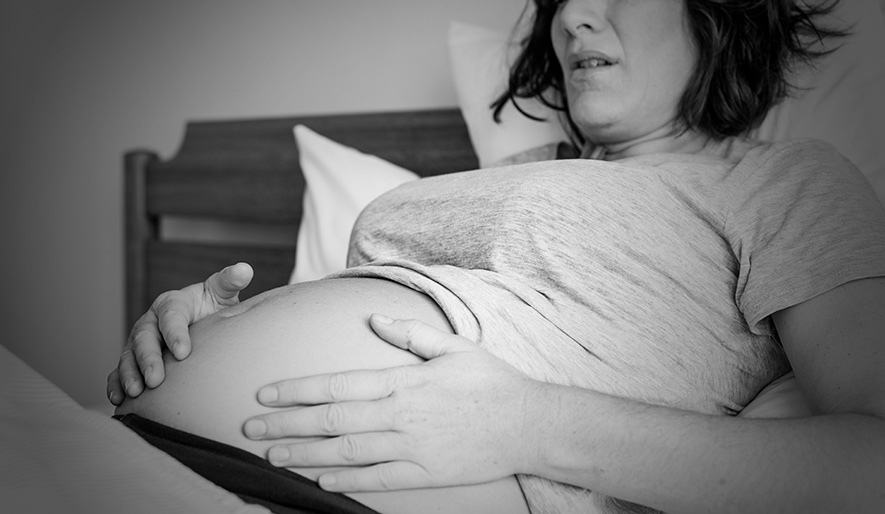
Gastric sleeve and pregnancy
Effects of gastric sleeve surgery on pregnancy:Gastric sleeve surgery is a kind of surgery for losing weight, which is famous among many people in the world. The results of this surgery are outstanding, which is why many people are interested in doing this surgery to be fit. The rate of doing this surgery is increasingly high among women, and more than 80% of people who have done this surgery are women. Half of all women are of reproductive age. This raises the question of what happens if these women want to have a baby and get pregnant after gastric sleeve surgery. In this article, we will talk about gastric sleeve and pregnancy. We will analyze all the factors affecting the pregnancy after the surgery and the fertility problem.
Can you have babies after gastric sleeve?
One of the most frequently asked questions people ask before gastric sleeve surgery is whether they will be able to carry a child after the surgery. The answer to this question is yes. There is a relation between gastric sleeve and pregnancy. Considering the fact that obesity is one of the reasons why people can’t have children, and it can raise infertility problems, gastric sleeve surgery can suddenly improve the chance of having a baby because of losing weight dramatically. We are witnessing Many women couldn’t have babies before the surgery, but after that, with no other treatments could carry a child. Because lack of evolution in women with obesity and overweight, some women, after this surgery, accidentally get pregnant. Since they haven’t been on birth control, and this is one of the problems in the initial 12 months post-surgery period. Menstrual cycles after gastric sleeve surgery would be more regular so that the ovulation would improve, and the conceiving chance will be high.
Women who are overweight or obese are the risk of high blood pressure and gestational diabetes, and babies with larger birth weights. The more weight you lose, the fewer risks and complications you can experience during pregnancy.
What happens if you get pregnant after gastric surgery?
The body, after surgery, goes through dramatic change, which can revolutionize your life. The patient will lose a considerable amount of weight after this surgery. So, they are at risk for some complications. Experts believe that at least 12 months after surgery is not the proper time for pregnancy. It is highly recommended to wait until a specific time (12 to 18 months after surgery) to lose weight quickly. Then you are allowed to get pregnant if your doctor is satisfied with your progress. There is a lot of evidence that research about gastric sleeve and pregnancy, and some of them show women who had babies less than two years after gastric sleeve surgery had higher rates of neonatal intensive care unit (NICU) admission, prematurity, and babies who were small for gestational age (SGA). So, it’s better to delay the pregnancy. A mother’s body needs many nutrients, and lack of them can cause many complications, including Neural tube defects, Anemia in Mom, and Preterm birth.
Getting pregnant right after gastric sleeve surgery is harmful to the mother. It might cause potential physical or mental development problems for the baby. In 12 months after surgery, patients are not able to eat the right amount of food they need when they are pregnant. So, a substantial amount of nutrients can’t receive by the baby, and the baby can’t grow. In this situation, we can see conflict. While the mother is trying hard to lose weight, the baby is gaining weight. Mothers should eat a lot of nutrient-rich food, but it’s impossible because of surgery. Apart from eating habits, a lot of changes can happen after surgery. Patients’ hormone levels can change to a great extent, and it’s not a proper time to get pregnant.
On top of that, pregnancy complications of gastric sleeve and pregnancy can arise when the patient gets pregnant too soon after this surgery. These complications included anemia, weight gain, low birth rate, and the risk of C-section. Having gastric sleeve surgery can have a lot of stress in your life, and getting pregnant soon can add this stress to your body while losing weight. For both your health and the baby, it’s better to be on birth control for 18 months after the surgery. After 18 months, your weight would be established, and there’s a chance to gain weight during pregnancy naturally.
Are you more fertile after gastric sleeve?
Nobody can deny the fact that obesity can play an important role in infertility, especially in women. That’s why so many studies research about gastric sleeve and pregnancy. Studies show that obesity can triple the risk of infertility in women. A delicate hormonal balance is required for being pregnant. Excessive fatty tissue, because of obesity, can lead to hormonal abnormalities since countless hormones are produced and stored in adipose tissue. This factor can reduce fertility. In addition, based on studies is one of the primary reasons for polycystic ovarian syndrome (PCOS), which can lead to infertility and irregular periods in women. According to studies, even a 5% reduction in invasion can boost fertility in women. On top of that, the chance of successful in vitro fertilization IVF can increase to a great extent. Decreasing weight also can make hormonal balance in your body, which is the best help for fertility.
While most studies focus on women, obesity can also cause men infertility. Drop in testosterone and erectile dysfunction can be seen more in men who are obese or overweight. Approximately 30% of infertility problems are related to obesity and weight-related diseases so there is a relation between gastric sleeve and pregnancy.
Will infertility problem change after gastric sleeve?
It is a concern of some people who are overweight and want to get surgery. Some patients ask although they have tried a lot to get pregnant, they failed for many reasons. And can this surgery change the result of fertility treatment, and is a relevant relationship between gastric sleeve and pregnancy? The answer is yes; six months after this surgery, many patients find out they are pregnant without any treatments and don’t want to be pregnant. Most of them tried so hard for several years but couldn’t manage to be pregnant, but after this surgery, the result of the story is, to a great extent, different. So, be ready and prevent an intended pregnancy after this surgery.
Is pregnancy safe after gastric sleeve surgery?
If you are interested in being pregnant after gastric sleeve surgery, it’s essential to talk to your doctor and your care team. Talk about your situation, what happens if you get pregnant right after this surgery, and what results from gastric sleeve and pregnancy. If you get pregnant after this surgery, you must talk to your midwife and let the care team know you have undergone gastric sleeve surgery. Getting pregnant 18 months after surgery is entirely OK. You can follow your midwife’s advice, but if it is sooner than this time, it’s essential to be under their control, and your nutritionist should have a diet for you. Whatever you do and whatever you eat is crucial in this situation. Be careful. Talk to your care team about the vitamins and mineral supplements you take daily, and you may be tested for blood for a nutrient level in your body.
After the Gastric sleeve, patients need pregnancy-specific vitamin and mineral supplements. The levels of calcium and folate, Vitamin B12, iron, and fat-soluble vitamins should be checked at the start of pregnancy. Regular blood tests to check nutrient levels each trimester is needed.
What about nutrients and calories?
Many women are in this situation because they think their baby cannot feel off. After all, they can’t eat the right amount of food their body and baby need. But they are wrong since the baby can get whatever it needs from the mother. This situation can be harmful to the mother. It’s better to talk to your care team about your diet and be sure that you are able to eat foods full of nutrients suitable for your body during pregnancy. Taking some supplements is necessary during this period. The type of pregnancy supplements differs from the surgery supplements, so talk about what you eat and let the care team know about your diet and the nutrients you are taking.
For example, although all women during pregnancy should take folic acid of 400 mcg when it comes to gastric sleeve and pregnancy, they should take at least 5 mg of folic acid. In most countries, people can’t get this dosage without a prescription. So, you would better talk to your midwife and care team about this situation.
Shouldn’t I be gaining weight during pregnancy?
During gastric sleeve and pregnancy, you are expected to gain weight since this is the time that gaining weight is essential. If you are losing weight even during pregnancy, you should talk to your doctor and manage your situation. The amount of food you intake and your activity should be monitored to discover your problem. If you continue to lose or are simply not gaining weight, your provider may order more frequent ultrasounds to see if your baby is growing normally.
What should be checked during pregnancy?
Although some symptoms are typical during pregnancy, when it comes to gastric sleeve and pregnancy, the care team should check these symptoms very carefully. One of these symptoms is vomiting. While nausea or sickness in early pregnancy is OK, vomiting can cause a problem. If you feel that, please ask your surgery team about the situation. Another problem is feeling pain. If you have severe stomach or belly pain, you should ask your surgeon or care team, and don’t ignore it. If you think you are losing weight at a fast pace, let your surgeon know. They can support you during pregnancy and in losing weight. On top of that, some patients can’t lose their excess weight when pregnant. Patients with BMI over 30 should be monitored very carefully since the risk of complications related to pregnancy is higher in these people.
Glucose tolerance test (OGTT)
Another crucial issue for women with BMI over 30 is checking glucose tolerance tests. This is because of preventing gestational diabetes. This test can be difficult for gastric sleeve and pregnancy. It’s your responsibility to talk to your provider about this problem; they will use another way to test your diabetes.
What should Obstetrics & Gynecology know about gastric sleeve and pregnancy?
Due to the fact that the chance of getting pregnant after gastric sleeve surgery is high, if you are not interested in being pregnant, you should tell your care team. Your care team will advise you about the way to prevent getting pregnant. On top of that, they should know about the type of surgery you have done to be able to help you in this way. So, be aware of all the processes you have been through and let your doctor know about gastric sleeve and pregnancy for your safety.
How will the patient be monitored during pregnancy?
Experiencing anemia or a low blood count after gastric sleeve surgery is common among patients. Because the body cannot get enough nutrients, vitamins, folate, vitamin B12, and iron, you may need a blood test for nutrients and vitamin deficiencies. Your doctor will recommend you take a multivitamin daily. But you should take one prenatal vitamin daily instead of multivitamins during pregnancy. After gastric sleeve
Are patients able to breastfeed even after gastric sleeve surgery?
It’s a common question among females who want to have children after gastric sleeve surgery. The answer is definitely yes. Breastfeeding after gastric sleeve and pregnancy is highly recommended since it can help you have nutrition. Your care team should test your blood for vitamin and mineral deficiencies. If something is wrong, you can take supplements to improve the nutrients in your blood. The more nutrient in your body, the more they can transfer into your breast milk. On top of that, your care team can monitor the growth development of your baby closely.
Some women, even in this situation after gastric sleeve surgery, are still overweight or obese, which is why milk comes in very late. It’s better to talk to your doctor and have support during breastfeeding, which can help your baby.
Is the patient going to put all the weight back on after gastric sleeve and pregnancy?
This is the concern of countless women whether they had gastric sleeve surgery or not. Patients should remember that their weight gain during pregnancy differs from what they can before that. Gaining weight during pregnancy is mainly because of growing the baby and being surrounded by amniotic fluid. More blood is produced, and breasts get more prominent. The amount of weight everyone gains during pregnancy differs from one person to another. It can depend on several factors, so don’t worry about the weight you gain during pregnancy. After that, you have a chance to lose it.
Are the chances of getting a C-section higher after gastric sleeve surgery?
Another essential factor that should be taken into account is that some women are worried about C-sections after gastric sleeve and pregnancy. Studies have shown the chances of getting a C-section in a pregnant woman after gastric sleeve surgery are higher than in the general population. But it’s not a fact. The reason behind this matter might be related to the age of women. Let us elaborate on it more. Most women who are interested in having children after gastric sleeve surgery are older than the general population who are getting pregnant. After a certain age, the chance of getting a C-section is higher. Some studies have also shown that gastric sleeve surgery is unrelated to raising C-sections. Talk to your surgeon if you are worried about the C-section and the likelihood of getting pregnant. Don’t hesitate to ask your questions.
Also, you may be able to reduce your odds of having a C-section by exercising during pregnancy, following weight-gain recommendations, and taking childbirth preparation classes. Some people might think about hiring a doula for support.
What can Flytotreat do for gastric sleeve and pregnancy?
If you are eager to do gastric sleeve in the cheapest country gastric sleeve surgery, you can do it in Iran. Flytotreat is one of the leading agencies for this surgery. Our surgeons will discuss all the risks and possibilities of this surgery; the most important is gastric sleeve and pregnancy. Please ask your questions and find your answer and reduce your concerns. Following your surgeon's instructions, you can have a baby after this surgery.
MEDICALLY REVIEWED BY: Dr. Ali Bazazi
AUTHOR: FlytoTreat's team of Authors
05 September 2023 - Updated At: 18 February 2024
Related Articles
Comment





